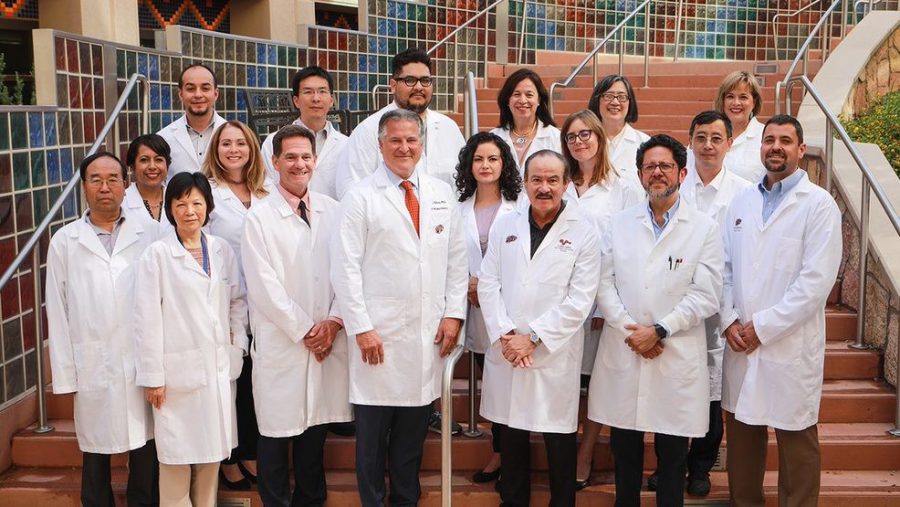The Border Biomedical Research Center (BRRC) conducts research with the goal to address cancer-related health disparities that the Mexican American population faces.
The BBRC started working on finding a project to focus on a year before the National Institute of Health’s U54 grant deadline, which they received and will support them for five years.
The overall goal of this grant is to develop, grow and sustain the programs of the BRRC, as well as to recruit, train and develop cancer scientists to translate meaningful findings back to the community.
“One of the aspects that is important for this grant is that area hospitals are involved and are collaborating with UTEP looking into specific types of cancer,” said Michael Kenney, UTEP’s College of Science associate dean for research and the BBRC’s core facilities deputy director.
The U54 grant focuses on cancer health disparities and includes three types of research projects: basic, behavioral and clinical.
“The basic research project consists on understanding, at the cellular level, how certain types of cancers behave in order to better prevent them and attack them,” Kenney said.
The behavioral research will explore the barriers and facilitators in the use of the vaccine against the human papillomavirus (HPV), which causes cervical cancer. The outcomes will likely help increase acceptance of the HPV vaccine.
The clinical research project centers on the establishment of a cancer tissue biorepository in collaboration with area hospitals, with the idea that the reduction and elimination of cancer health disparities in individuals of Mexican origin is dependent on identifying, understanding and therapeutically targeting the unique molecular, genetic and physiological signatures of cancer in this population.
“In addition, the grant funds a community engagement core that involves establishing collaborative partnerships, disseminating findings and engaging participants in research,” said Maria Ordaz, the university’s College of Science assistant director for research initiatives.
The BRRC also seeks to generate opportunities for undergraduate and graduate students who want to go into the biomedical field and serve as a major point of entry for Hispanics and other underrepresented minorities .
“Being an undergraduate in other places, you don’t get a lot of hands–on and the kind of things you are able to do are limited, but here in UTEP I noticed the opposite,” said Alejandro Rodriguez, an undergraduate student majoring in cellular and molecular biochemistry. “They really trust us a lot and they train us really well. I feel comfortable, like I can go anywhere, and it’s been positive and supportive. As a young scientist, working with them has helped me a lot.”
The BRRC plans to reach its goals by focusing on five objectives: contributing in the investigation of cancer through clinical studies within our geographically isolated and forgotten Mexican American population; strengthen researchers’ abilities through facilities improvement; recruit experienced faculty members to address cancer issues; facilitate professional development of BRRC investigators via training and education focusing in cancer project themes; and promoting community partnerships to encourage participants for research studies.
Maria Salette Ontiveros may be reached at [email protected]












